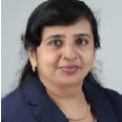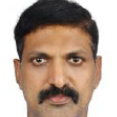International Journal of Image, Graphics and Signal Processing (IJIGSP)
IJIGSP Vol. 16, No. 2, 8 Apr. 2024
Cover page and Table of Contents: PDF (size: 2008KB)
Balancing Simplification and Detail Preservation in Low Poly Image Abstraction through Edge-Preserved Seed Point Generation
PDF (2008KB), PP.43-57
Views: 0 Downloads: 0
Author(s)
Index Terms
Low Poly Image, Abstraction, Anisotropic Diffusion Filter, Entropy Map, Delaunay Triangulation, Seed Point Generation
Abstract
Low poly image abstraction is an art form that has gained popularity in recent years, particularly in the digital art community. The process involves simplifying an image by reducing the number of polygons used to represent it while preserving its overall appearance and details. This paper proposes a new approach to low poly image abstraction that utilizes edge-preserved seed points to preserve important details while reducing triangle count. The proposed approach involves six steps. First, the input image is smoothed using an anisotropic diffusion filter. Second, the entropy of each pixel in the smoothed image is computed and stored in an entropy map. Third, seed points for Delaunay triangulation are selected by identifying pixels with maximum entropy values in the entropy map. Fourth, the Delaunay triangulation is generated using the seed points as input. Fifth, colors are assigned to the triangles in the Delaunay triangulation using a color selection module. Finally, the final low poly image is generated by rendering the colored Delaunay triangulation. The effectiveness of the proposed method was evaluated through qualitative and quantitative experiments, comparing its results with other comprehensive methods using a diverse range of images from a benchmark dataset. The results showed that the proposed method outperformed other methods in preserving image details while maintaining low polygon count. Additionally, the proposed method was found to be efficient and capable of producing visually appealing results.
Cite This Paper
Philumon Joseph, Binsu C. Kovoor, Job Thomas, "Balancing Simplification and Detail Preservation in Low Poly Image Abstraction through Edge-Preserved Seed Point Generation", International Journal of Image, Graphics and Signal Processing(IJIGSP), Vol.16, No.2, pp. 43-57, 2024. DOI:10.5815/ijigsp.2024.02.04
Reference
[1]https://www.dontmesswithtexas.org/
[2]https://superhotgame.com/
[3]https://store.steampowered.com/app/661740/Morphite/
[4]https://astroneer.space/
[5]http://morbus.remscar.com
[6]M. M. Keleşoğlu and D. GüleçÖzer, “A Study on Digital Low Poly Modeling Methods as an Abstraction Tool in Design Processes,” in Civil Engineering and Architecture, 2021, vol. 9, no.7,pp. 2570 - 2586.
[7]Adobe Illustrator: https://www.adobe.com/products/illustrator.html.
[8]CorelDRAW: https://www.coreldraw.com/
[9]https://www.sketch.com/
[10]Delaunay triangulation generator : http://103.16.129.81/delaunay/
[11]Low Poly Art Generator: https://codepen.io/EvanLevesque/pen/ObgOaV?editors=1000
[12]Polytomizator: https://stonet2000.github.io/Polytomizator/
[13]Low-Poly Image Generator: http://low-poly.coolvr.tech/#/
[14]Triangula: http://snapbuilder.com/code_snippet_generator/triangulator_triangulation_image_generator/
[15]T. Uasmith, T. Pukkaman, and S. Peeraya,” Low-poly image stylization”. Journal for Geometry and Graphics, Vol.21, pp.131-139, 2017.
[16]W. Zhang, S. Xiao and X. Shi, "Low-poly style image and video processing," in 2015 International Conference on Systems, Signals and Image Processing (IWSSIP). IEEE Xplore, 2015, pp. 97-100.
[17]M. Gai and G. Wang, “Artistic low poly rendering for images,” The Visual Computer, vol. 32, no. 4, pp.491–500, 2016.
[18]K. Lawonn and T. Gunther, “Stylized Image Triangulation,” Computer Graphics Forum, vol.38, no. 1, pp.221-234, 2018.
[19]R. Ng, L.-K. Wong, J. See, “Pic2Geom: A fast rendering algorithm for low-poly geometric art, in: Pacific Rim Conference on Multimedia, Springer, 2017, pp. 368–377.
[20]P.-E. Low, L.-K. Wong, J. See, R. Ng, “Pic2PolyArt: Transforming a photograph into polygon-based geometric art”, in Signal Processing: Image Communication, Elsevier, 2021.
[21]P. Perona and J. Malik, "Scale-space and edge detection using anisotropic diffusion". Proceedings of IEEE Computer Society Workshop on Computer Vision. pp. 16–22. 1987.
[22]Shannon, E. Claude, "A Mathematical Theory of Communication". Bell System Technical Journal. vol. 27, no.4,pp. 623–656.
[23]D. Mould, P.L. Rosin, Developing and applying a benchmark for evaluating image stylization”, Computers & Graphics, vol. 67, pp.58-76, 2017.
[24]https://umeecorn.com/Polyvia/image.html
[25]https://cjqian.github.io/docs/tri_iw_paper.pdf
[26]https://www.kaggle.com/code/navidrashik/object-detection-and-classification/data


